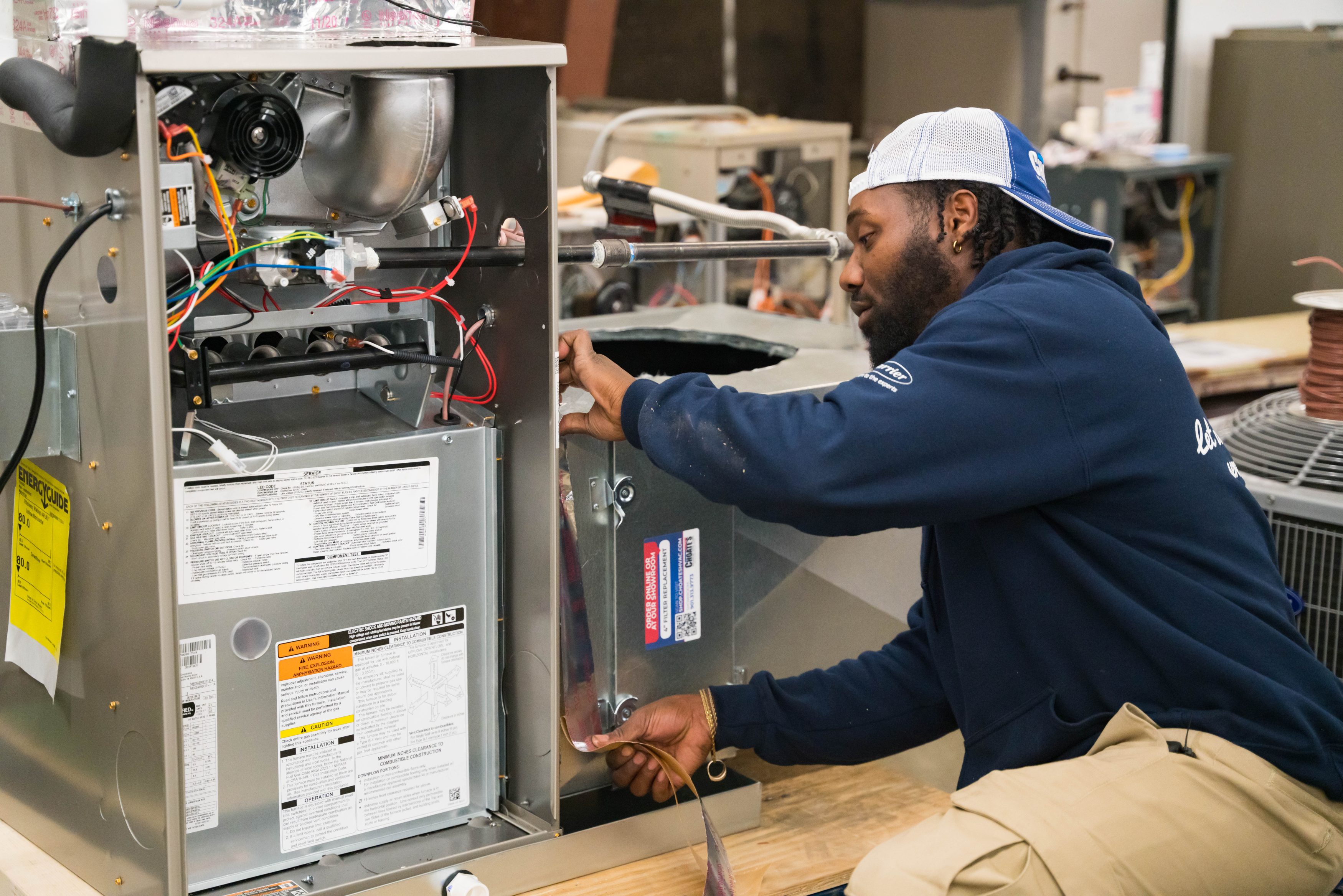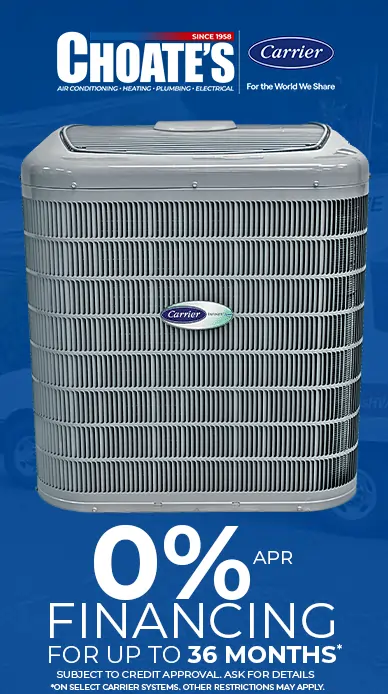901 755 4797
Homeowners/Real estate agents preparing to sell a home?
As a homeowner or real estate agent, you’re well aware of how crucial the HVAC system is when it comes to selling a home. If the system is brand new, you can highlight it as a desirable feature. If it’s been well-maintained, you can mention it as a benefit to potential buyers. However, if the system is old and nearing the end of its useful life, the seller may need to consider replacing it to get the best possible price for their property.
If the system doesn’t require replacement, it’s often helpful for real estate agents to recommend having an HVAC specialist inspect, clean, and service the unit before showing the home. This simple step demonstrates your dedication to the seller’s best interests and cares for the property.
Furthermore, having records of past electric bills and service receipts can give the buyer and their agent added confidence in the integrity of the home. Don’t forget to draw attention to any high-efficiency ratings on the HVAC system as well.
Buyers’ Insight to the HVAC System
Knowing important information about a home can benefit both you and your buyer during a showing. Gathering this information may require some effort, but it shows your dedication to your buyer’s needs. When showing a home, it’s crucial to ask the seller’s agent the following questions:
- What is the age of the HVAC system?
- Are all of the components of the HVAC system the same age?
- Has the HVAC system been properly maintained?
- Are there any service agreements and repair receipts available?
- Is the HVAC system rated for energy efficiency?
- What is the current owner’s average utility bill?
Energy efficiency ratings are particularly important to buyers who are environmentally conscious and concerned about utility bills. According to TN.gov, heating, and cooling homes account for around half of the energy costs. To keep utility bills under control, it’s recommended to set the thermostat to 78°F in the summer and 68°F in the winter. However, extreme temperatures require more energy to maintain a comfortable home temperature. As a realtor, you can reassure buyers that high utility bills are common in the Midsouth and its surrounding areas such as Memphis TN, Desoto, MS, etc.
Why It’s Important to Have Your HVAC Inspected
Regular HVAC inspection helps keep systems functioning properly and eliminates the surprise costs of malfunctioning parts, electrical problems, and gas leaks. If you’re wondering how often to service your air conditioner, consider scheduling inspections once or twice each year.
Most HVAC systems come with warranties that mandate servicing, so if you push back these inspections, you could be violating that warranty. An unserviced system also loses about 5% efficiency per year and reduces the system’s lifespan by 50%.
It’s also especially important for homebuyers to have an HVAC inspection done on top of a standard home inspection before putting a down payment on the home. General inspectors are not required to have HVAC expertise or tools, so they may miss problems that a certified HVAC technician would spot.
What Does a Furnace Inspection Cover?
Having your furnace inspected is key to keeping your home safe, warm, and efficient all winter. A professional technician will inspect the following components during a regular furnace inspection.
- Thermostat: One of the first things your inspector will assess is whether your thermostat is working properly. They will test the device and inspect the internal wiring while checking to see if the heat comes on and if the thermostat is reaching its set temperature.
- Furnace Cabinet: The furnace cabinet houses all the internal furnace components. Your inspector will examine its structure to ensure it’s sound and able to properly protect your system.
- Electrical: Problems with your furnace’s electrical components can be dangerous. Your inspector will evaluate all connections and test any safety features. One key feature that needs to be in good shape is the high-limit switch, which automatically turns off the furnace when it is overheating.
- Furnace Blower: The furnace blower wheel circulates air through your HVAC system and into the ductwork. Your inspector will inspect the blower and clean it if needed. A dirty or malfunctioning blower will struggle to keep up with your home’s heating needs and raise your energy bills.
- Ignition: Your inspector will look closely at the furnace ignition, which includes all of its burners as well as the flame sensor and ignitor. Dirt or debris buildup on these components can cause your furnace to blow cold air or heat your home inconsistently.
- Venting and Heat Exchanger: Your inspector will look at the condition of the flue pipe, which vents harmful gasses from your furnace out of your home, and the heat exchangers, which release hot air into your home. Any holes or cracks in these parts can lead to poisonous carbon monoxide gas leaks.
- Gas and Carbon Monoxide Testing: Finally, your inspector will test your home for carbon monoxide and other deadly gas leaks. They’ll also test all of your home’s carbon monoxide detectors to ensure you’re protected in case a problem arises.
What Does an Air Conditioning System Inspection Cover?
Air conditioner inspection covers all the parts of your AC system that keep it running so your home stays cool in the summer. This includes the following but not limited to:
- AC Evaporator Coils: The AC evaporator coils absorb heat and humidity from indoor air. They’ve typically sealed away and difficult to access, and problems like dust, dirt, mold, or icing can make the system less efficient. Your energy bills may rise and other components may wear down more quickly. An inspector can access these coils to inspect, clean, and disinfect them if necessary.
- Drain Pan: The drain pan sits under the evaporator coils and collects excess moisture. These pans are a common source of leaks and are susceptible to mold. Your inspector will assess the condition of your drain pan and replace it if needed.
- Condensate Drain Lines: Your AC’s condensate lines drain excess water from the drain pan out of your home. If they get loose, clogged, or damaged, your system will leak. An inspector will take a close look at all drain lines and clean them out if they’re clogged.
- Outdoor Condenser Unit: The condenser unit is part of your AC system that sits outdoors next to your house. An inspector will visually inspect the unit as well as the fan and motor within for damage or wear.
- Refrigerant Levels: Many AC problems ranging from freezing to warm air are caused by low refrigerant levels. Your inspector will check your refrigerant and refill it as needed.
- Electrical: Finally, your HVAC inspector will measure the voltage and amp draws of the motor capacitor, electrical connections, and wiring to make sure they’re running efficiently. Problems with your AC electrical can cause it to make strange noises, shut off on its own, blow warm air, or fail to turn on entirely.
What Does an Air Duct Inspection Include?
ir duct inspection is the evaluation of an HVAC’s system’s airflow. Your HVAC technician will inspect the exterior of all ducts for leaks and test air temperatures throughout the system.
- Duct Leaks: Leaky air ducts can raise energy bills and prevent your HVAC system from reaching your set temperature. Some leaks send air into unconditioned spaces or suck unconditioned air in.
- When inspecting for leaks, a technician will use special equipment to pressurize the duct system and measure the airflow through the ducts at pressure to detect the amount of air leaking out.
- Air Flow Inspection: During an air flow inspection, an HVAC technician assesses the furnace filter, grilles, registers, and vents to make sure that air is flowing properly through each. They’ll make adjustments and suggest repairs as needed if they detect problems.
- Air Temperature Check: An air temperature check should happen on a warm day. Your HVAC technician will run the AC for 15 minutes, then measure and note the temperature on a vent. They’ll repeat the process on vents throughout the home to check for differences in temperature, which may indicate problems.
How Much Does an HVAC Inspection Cost?
An HVAC inspection usually costs between $200 and $400, though inspections for a particularly large home or one with multiple HVAC systems may cost up to $600.
This upfront cost can help you save money in the long run, because you’ll avoid costly major repairs if you catch problems early. Plus, a more efficient system means lower energy bills and a longer time span between replacements. Be sure to compare inspection fees across multiple contractors when calling HVAC companies near you.
Can You Do an HVAC Inspection Yourself?
Inspecting your home’s HVAC systems regularly can help you stay on top of potential issues. You can do a basic visual inspection of the indoor and outdoor units to check for leaks, loose electrical connections, unusual HVAC noises, clogged drains, dirty filters, dirt buildup, and gas leaks. Be sure to turn off your HVAC circuit breakers before touching any components.
While this sort of basic DIY inspection is safe to do, you’ll still want to hire a professional HVAC technician annually to do a full inspection and any necessary maintenance. HVAC systems are complex and can be dangerous to work on. Plus, a specialist can spot problems that may not be obvious to the untrained eye.
Call Choate’s Air Conditioning, Heating, and Plumbing to schedule your Real Estate HVAC inspection today. Our experienced technicians will thoroughly inspect your system and provide any necessary maintenance to keep it running efficiently. Don’t wait until a major issue arises – regular inspections can save you time, money, and stress in the long run when buying a new home. Contact us at (901)755-4797 now to schedule your appointment.


